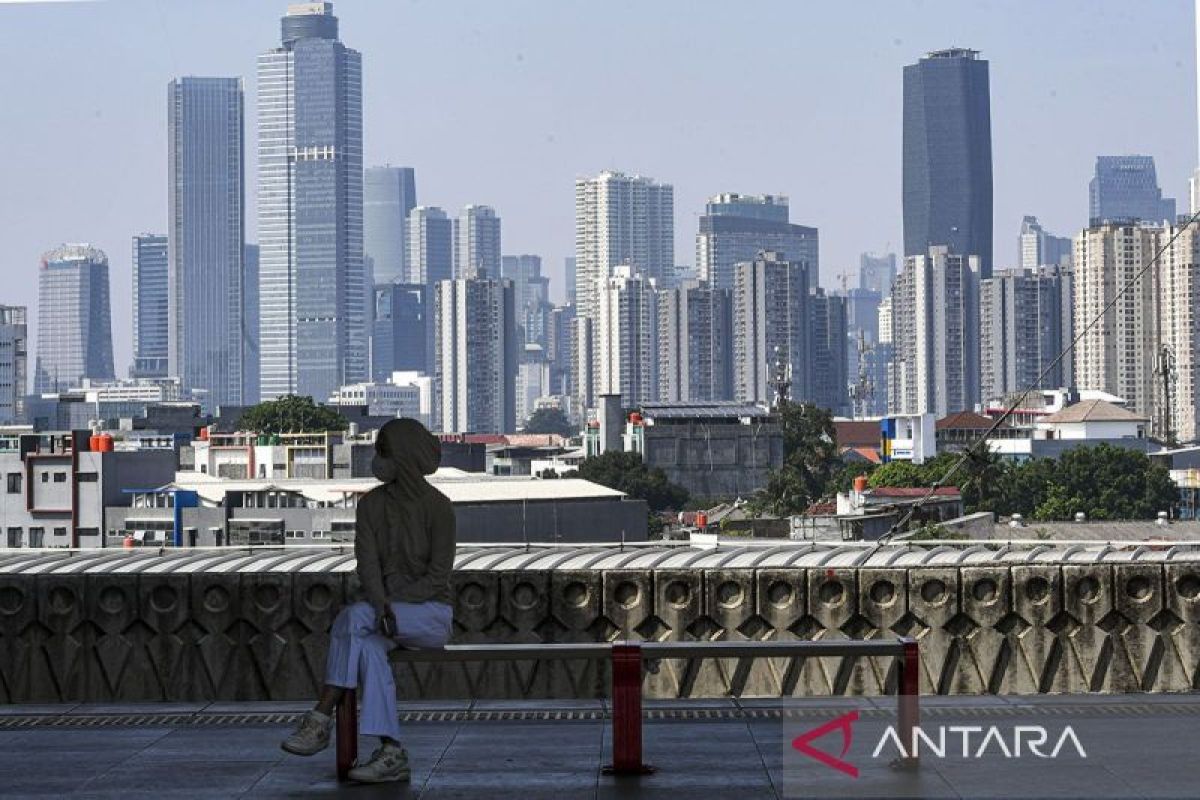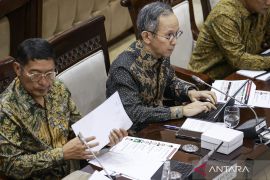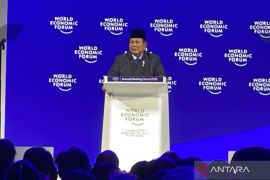The conflict between Russia and Ukraine has had an impact on global food and energy instability.
Countries worldwide are expected to continue to prioritize domestic supplies.
Monetary tightening in the United States threatened global inflation and exchange rates, including the depressed rupiah.
Policymakers were urged to prepare regulations that protect the national economy. People were urged to anticipate the economic condition to survive a recession. The end of 2022 was beset with pessimism.
Indonesia's monetary-fiscal maneuvers
The global pressure can be seen in the national soaring inflation. At 2022-end, inflation was recorded at 5.51 percent year-on-year (yoy), exceeding Bank Indonesia's (BI's) target of 2-4 percent yoy.
To control inflation, BI took persistent steps on the 7-Day Reverse Repo Rate (BI7DRR), or known as the BI-Rate.
The interest rate was recorded at the level of 3.5 percent in July 2022. In order to maintain inflation within the range of three percent, give or take one percent, in 2023, BI raised the interest rate to 5.50 percent in January 2023.
Similar to BI, the Finance Ministry also targeted to maintain inflation at around 3.6 percent in the 2023 State Budget (APBN).
Efforts to control inflation were made to maintain people's purchasing power that is the main source of Indonesia's economic growth.
The government also targeted economic growth to reach 5.3 percent this year by preparing various fiscal instruments to withstand the economic turmoil and maintain recovery momentum.
State revenue was targeted at Rp2,463 trillion and state spending at Rp3,061.2 trillion, so that the state budget deficit can be pegged at 2.84 percent.
The monetary-fiscal preventive efforts resulted in declining inflation.
The downward trend in inflation, which strengthened public consumption performance, contributed to economic growth achievements.
In the second quarter of 2023, the economy was recorded to grow by 5.17 percent yoy, maintaining the national growth trend above five percent for seven consecutive quarters.
The manufacturing industry also expanded, and Indonesia's manufacturing Purchasing Managers’ Index (PMI) in that period was recorded at the level of 53.3.
This achievement made Indonesia to be listed in the 18.2 percent of countries that recorded expansive and strengthening manufacturing amid the global economic contraction.
The various positive performances proved wrong the recession projections that were widely feared last year.
However, the diminishing threat of recession did not make the Indonesian economy completely free from economic turmoil.
The climate crisis, in the form of the El Nino phenomenon that threatened the food sector, was one of the factors in the 2023 economic turmoil.
El Nino was also followed by the Hamas-Israel conflict that potentially increased the global oil and food prices.
These conditions were expected to keep global inflation at a high level, which forced interest rates in advanced economies, including the Federal Funds Rate (FFR), to stay higher for longer.
This will lead to the reversal of capital flows from developing countries to developed countries.
In addition, the strength of the US dollar will increase significantly and put pressure on various world currencies, including the rupiah.
In response, BI raised its benchmark interest rate by 25 bps in October 2023 after maintaining it for eight consecutive months.
BI's six percent interest rate is expected to maintain the rupiah exchange rate stability and inflation within the target range, thereby mitigating the feared negative impacts on domestic economic resilience.
Anticipation for 2024
Economic uncertainty is expected to continue ahead of 2024, as geopolitical tensions are difficult to predict, the economies of several countries are projected to remain weak, and the El Nino phenomenon may continue next year.
In terms of the financial market, experts projected the Fed to reduce its interest rate in the second half of 2024, which Indonesian Finance Minister Sri Mulyani Indrawati said is a signal that the interest rate shock will have passed.
Even so, BI still prepared its monetary policy by maintaining the interest rate at the level of six percent. It is expected that inflation in 2024 can be controlled within the range of 2.5 percent, give or take one percent.
The country also needs to pay attention to the economic performance during the 2024 election, which is said to put the national economy in a vulnerable condition.
Although campaign activities can push up public consumption, political uncertainty makes investors adopt the wait-and-watch approach that will impact market stability.
Policymakers need to continue monetary-fiscal maneuvers to safeguard the economy in 2024.
BI's commitment to focus on pro-stability monetary policy and the Finance Ministry utilizing the 2024 State Budget as a shock absorber is expected to protect the national economy next year, as both have reduced the threat of recession in 2023.
Related news: Indonesia's economy grows well with domestic demand's support: BI
Related news: Circular economy is pillar of Golden Indonesia 2045 vision: Ministry
Related news: Indonesia wields huge potential in blue economy: Minister Monoarfa
Translator: Imamatul S, Kenzu
Editor: Azis Kurmala
Copyright © ANTARA 2023












